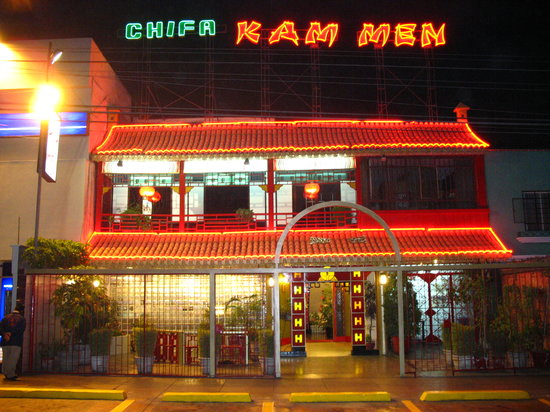Ignacio Lopez-Calvo
The Afterlives of Wokeness and the Limits of
Epistemic Colonialism in Latin America
Ignacio López-Calvo

Chifa is a Chinese Peruvian culinary tradition based on Cantonese elements fused with traditional Peruvian ingredients and traditions
Even if the terms and concepts of woke, cancel culture, cultural appropriation, and woke capitalism have not always been incorporated into the local languages around the world, similar concerns are increasingly percolating in sociopolitical debates in many countries, but often adapted to local concerns (caste system instead of racial discrimination in India, for example). The ways in which these American terms have been exported (or not) reveal the limits of epistemic imperialism and cultural colonialism, as not all them are always easily understood or imported across cultures. In some cases, they are creolized, adapting their meaning or application according to the local circumstances. In the following paragraphs I will provide a few examples of the reception of these concepts in Latin America.
In Chile, according to Maria Montt Strabucchi, professor of cultural studies at the Pontificia Universidad Católica de Chile, the idea of being canceled exists and is used, mainly by younger people – they say, for example, they are going to cancel me for saying this. Instead of being woke, in Chile people use the idea of “deconstructing,” as in “he has to be deconstructed," “deconstruct yourself.” And the idea of cultural appropriation has been gaining ground, especially after a lawsuit against the fashion brand Carnaval over clothing inspired by designs of the Selknam culture, from Tierra del Fuego, at the southern tip of South America. Regarding topics such as woke capitalism and identity politics, Montt Strabrucchi thinks that these are still niche topics dealt with mostly in academic circles.
Moving on to Mexico, according to Jaime Ortega, a Mexican political science professor at the Universidad Autónoma Metropolitana, “woke” is derogatively used in his country as a synonym for “politically correct.” For this reason, he adds, no one defines herself as woke; the woke one is always the other. The term is also used to disparagingly describe those who aspire to discuss issues that, according to Ortega, are supposed to be much more relevant in the United States than in Mexico, such as Gender Studies, Trans Studies, etc. In another nuance of the term, someone who is woke tends to be concerned about using inclusive language and even reprimands uneducated peasants for not using it. Woke, Ortega adds, is a very progressive, middle-class person (often academics in the humanities or people on social media) who can afford to travel a lot and considers himself to be cosmopolitan, ecologist, and/or feminist; it is someone who feels to be in a position of moral superiority over others and reprimands them for not being like him. From Ortega’s definitions, therefore, it seems as if the concept of “woke” in Mexico is negatively seen as snobbism and a foreign cultural imposition that does not have much to do with Mexican reality.
As to the reception of these concepts in Peru, Rodrigo P. Campos, a communicator and language instructor, explains that rather than “woke,” the common word in Peru to refer to people who question preconceived ideas that normalize violence against others is “deconstructed.” And although the term “cultural appropriation” is known, it is mostly used ironically, even in progressive circles, to mock people obsessed with “canceling” others. It is also used to refer to mixed-race people trying to pass as white. Likewise, it is normal today to find chifas (restaurants that serve Chinese Peruvian food) that are run by people with no Chinese ancestry. And even if the food is not very authentic, clients do not seem to have a problem with it.
The concept of identity politics belongs exclusively to the academic world. Right now, Campos adds, there are huge social protests in the south of Peru because there is a sizeable vulnerable population that does not feel as if they are part of the country, as the government has consistently ignored them. For them, identity politics, including the discourse about sexual minorities, reproductive rights, feminism, gay marriage, etc., are secondary, something of a bourgeois struggle for people with a college education. Instead, they are more concerned about surviving, not dying from easily curable diseases, how outside actors destroy their land for mining or growing coca, and about their children dying because they drink contaminated water. Woke capitalist does exist in Peru: they take the side of progressive agendas because they feel that they will sell their products better that way.
All in all, both in the United States and in Latin America, it is important not to confuse criticism with cancellation. Likewise, criticism of cancel culture should not become an easy alibi to get away with privilege and discrimination, or to avoid defending political positions with valid arguments.
 Ignacio López-Calvo is Professor of Latin American Literature at the University of California, Merced.
Ignacio López-Calvo is Professor of Latin American Literature at the University of California, Merced.
Back to Meridian 4.png)

